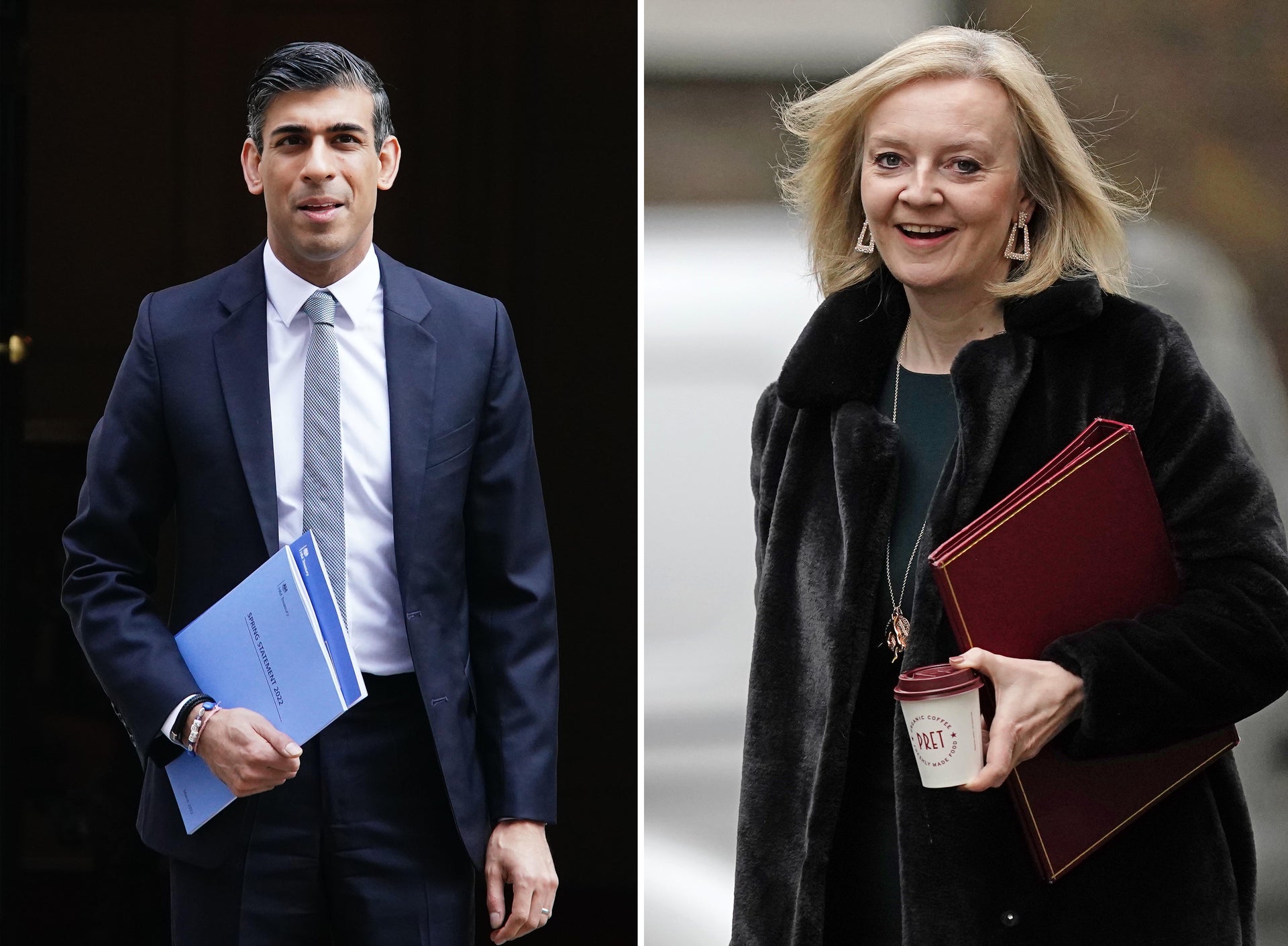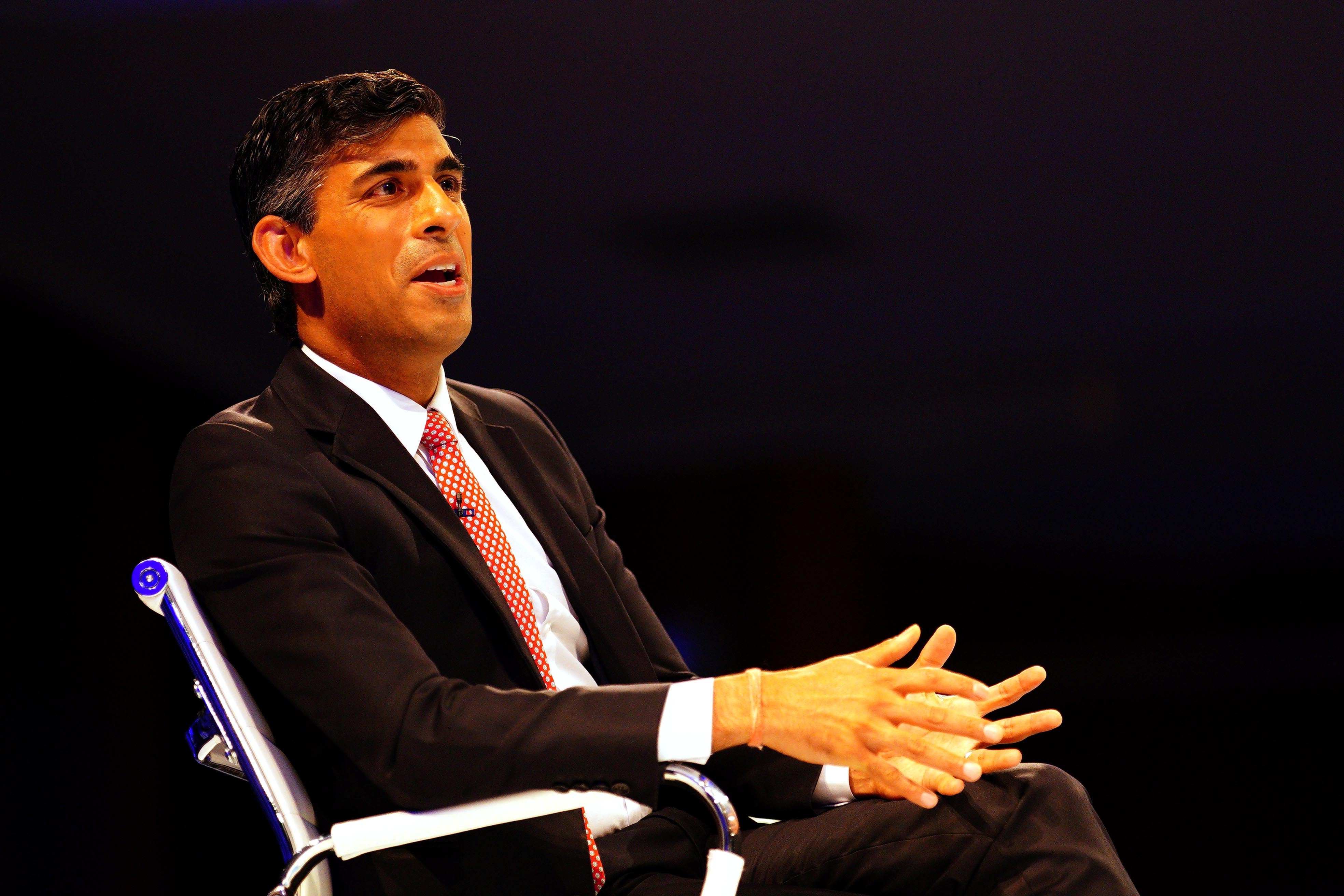Conservative Party delays sending out leadership ballots on security advice
It is understood there was no specific threat from a hostile state and concerns were instead raised over the vulnerability of the voting process.

Your support helps us to tell the story
From reproductive rights to climate change to Big Tech, The Independent is on the ground when the story is developing. Whether it's investigating the financials of Elon Musk's pro-Trump PAC or producing our latest documentary, 'The A Word', which shines a light on the American women fighting for reproductive rights, we know how important it is to parse out the facts from the messaging.
At such a critical moment in US history, we need reporters on the ground. Your donation allows us to keep sending journalists to speak to both sides of the story.
The Independent is trusted by Americans across the entire political spectrum. And unlike many other quality news outlets, we choose not to lock Americans out of our reporting and analysis with paywalls. We believe quality journalism should be available to everyone, paid for by those who can afford it.
Your support makes all the difference.The Conservative Party has delayed sending out ballot papers for the leadership election over security concerns.
The party has made changes to its process on the advice of the National Cyber Security Centre (NCSC), part of GCHQ, following warnings that hackers could change members’ votes.
Under the party’s original system, members would be able to vote but change their decision while the ballot remained open but now a unique code will be provided which will only allow one, unchangeable vote.
The ballots had been due to be sent out from Monday but could now arrive as late as Thursday August 11.
As you would expect from the UK’s national cyber security authority, we provided advice to the Conservative Party on security considerations for online leadership voting
A Conservative spokesman said: “We have consulted with the NCSC throughout this process and have decided to enhance security around the ballot process.
“Eligible members will start receiving ballot packs this week.”
An NCSC spokesman said: “Defending UK democratic and electoral processes is a priority for the NCSC and we work closely with all parliamentary political parties, local authorities and MPs to provide cyber security guidance and support.
“As you would expect from the UK’s national cyber security authority, we provided advice to the Conservative Party on security considerations for online leadership voting.”
The Daily Telegraph said it understood there was no specific threat from a hostile state and concerns were around the vulnerability of the voting process.

The party has been forced to abandon the plans to let members change their vote if they alter their decision about which candidate to back during the election process, the newspaper reported.
A message sent to members said if they wish to vote online they will have to enter their single-use code and fill in security questions.
If they choose to vote by post, their online code will be deactivated once the ballot is received, “reducing the risk of any fraud”.
The message to members said “it is an offence to vote more than once” – with the threat of withdrawn membership for anyone found to have done so.
Former party treasurer Lord Cruddas of Shoreditch, who has been campaigning to keep Boris Johnson in office, said the leadership contest should be suspended as a result of the cyber security concerns.
In a letter to the party’s board, he said members should then be given a vote on whether to accept Mr Johnson’s resignation.
“If the members vote to keep Boris then there is no need for a leadership campaign and no more cyber security threats,” he said.
Rishi Sunak appeared to have lost ground in the race but the delay could give him more time to make an impression before votes are cast.
A YouGov poll puts Liz Truss well ahead of the former chancellor in support from party members, with her lead increasing to 34 points.
It shows that 60% of the party members polled between July 29 and August 2 say they intend to vote for the Foreign Secretary, up from 49% since the period July 20 to 21 when the rivals first made the cut for the final two.
Support for Mr Sunak has dropped from 31% to 26%, according to YouGov, while the rest of the 1,043 Conservative Party members polled say they are undecided or will not vote.
In a further blow to Mr Sunak, YouGov data also showed 83% of those who currently say they intend to vote for Ms Truss also say they have made up their mind.
Just 17% say they might change their mind, while 29% of Mr Sunak’s supporters say they could still vote differently.
But the Sunak campaign will be hoping the additional time to make their case before the first votes are cast will fall in their favour.

The Truss campaign spent Tuesday performing damage control after abandoning a flagship policy to slash £8.8 billion from public sector pay outside London.
The announcement on Monday night met fierce opposition from senior Conservatives, who said that it would be “levelling down” the nation by leaving nurses, police officers and teachers worse off.
Conservative Tees Valley mayor Ben Houchen, who is backing Mr Sunak, said the proposed pay policy had left him “speechless”, and suggested it would have cost the party the next general election if implemented.
Mr Houchen told BBC Radio 4’s World At One programme that the “horrifically bad” policy “could be Liz’s dementia tax moment”, in a comparison to Theresa May’s scrapped policy that was blamed for her poor electoral performance in 2017.
Mr Sunak’s camp argued that the move was no mistake, saying Ms Truss had called for the move when she was chief secretary to the Treasury in 2018.
“The lady is for turning,” a source said, mocking the Cabinet minister over comparisons she receives with former Conservative prime minister Margaret Thatcher.
But Ms Truss insisted her policy had been “misrepresented”.
Speaking to the BBC in Dorset, she said: “I’m afraid that my policy on this has been misrepresented. I never had any intention of changing the terms and conditions of teachers and nurses.
“But what I want to be clear about is I will not be going ahead with the regional pay boards, that is no longer my policy.”
Former chief whip Mark Harper told Ms Truss to stop “blaming journalists – reporting what a press release says isn’t ‘wilful misrepresentation’”.
“So this U-turn has wiped out £8.8 billion in savings. Where are these going to come from now?” the Tory MP for the Forest of Dean said.
“An economic policy that can’t be paid for isn’t very Conservative. Mrs Thatcher would be livid.”
But after a mixed day, Ms Truss did receive a campaign boost with backing from the Daily Mail.
A Truss campaign source said on the YouGov polling: “Members are making up their mind, and they are supporting Liz.
“Her bold and ambitious plan for the country and economy is uniting Conservatives right across our nation. But we are certainly not complacent – Liz is fighting for every vote, meeting as many members as possible.”